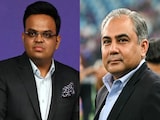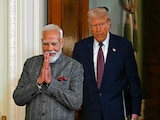French-born Moungi Bawendi, Louis Brus of the United States and Russian-born Alexei Ekimov on Wednesday won the Nobel Chemistry Prize for research in tiny particles known as quantum dots.
The trio, whose names were leaked in the Swedish press ahead of the announcement, succeeded in producing these tiny components, that "now spread their light from televisions and LED lamps, and can also guide surgeons when they remove tumour tissue, among many other things," the jury said.
The names of the recipients had already been reported by Swedish media, several of which said they had received a press release from the Royal Swedish Academy of Sciences that named the three US-based chemists -- hours before the academy had even met for a final vote on the winners.
Bawendi, speaking to reporters, said he was "shocked" by the news and had not seen the leaked reports.
Nobel leaks are rare, with the various prize-awarding academies going to great lengths to keep the winners' names under wraps until the announcements.
Bawendi, 62, born in Paris to French and Tunisian parents, is a professor at Massachusetts Institute of Technology (MIT) in the United States.
Brus, 80, is a professor at Columbia in New York, and Russian-born Alexei Ekimov works at the US-based Nanocrystals Technology.
The trio will share the $1 million award, receiving it from King Carl XVI Gustaf at a ceremony in Stockholm on December 10, the anniversary of the 1896 death of scientist Alfred Nobel who created the prizes in his last will and testament.
The chemistry award is the third Nobel of the season after the medicine prize and the physics prizes were announced earlier in the week.
In medicine, RNA researchers Katalin Kariko and Drew Weissman were honoured Monday for their groundbreaking technology that paved the way for mRNA Covid-19 vaccines.
The physics prize on Tuesday went to France's Pierre Agostini, Hungarian-Austrian Ferenc Krausz and Franco-Swede Anne L'Huillier for research using ultra quick light flashes that enable the study of electrons inside atoms and molecules.
The highly watched literature and peace prizes, will be announced on Thursday and Friday respectively.
The Economics Prize -- created in 1968 and the only Nobel not included in the 1895 will of Swedish inventor and philanthropist Alfred Nobel founding the awards -- closes out the 2023 Nobel season on Monday.
(Except for the headline, this story has not been edited by NDTV staff and is published from a syndicated feed.)















